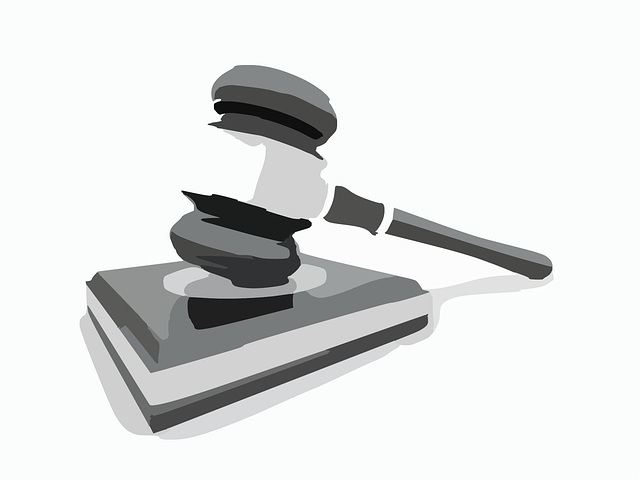Public corruption charges carry severe legal consequences. To mitigate penalties, understanding the investigative process and taking strategic actions like cooperating with investigators, providing evidence of innocence, and exposing larger networks is crucial. A defendant's motivations, personal history, and actions to rectify wrongs influence court decisions. Cooperation, remorse, restitution, and philanthropy can lead to more lenient sentences. A proven track record of charitable work or public service may garner judge empathy. Repeated offenses or callous disregard can intensify crime severity, making mitigation efforts harder. Skilled general criminal defense attorneys navigate complexities, protect rights, and gather evidence for a solid defense. Crafting compelling narratives and presenting mitigating factors can humanize clients. After conviction, appealing through procedural errors, constitutional violations, or insufficient evidence seeks charge dismissal or sentence reductions. Effective legal defense rectifies miscarriages of justice and maintains system integrity, particularly in mitigating penalties in white-collar crime cases.
Public corruption charges carry severe legal implications, undermining public trust and societal integrity. Understanding these charges involves grasping their defining characteristics and the complex web of legal consequences. This article delves into mitigating penalties in white-collar crime cases, exploring factors that can influence lighter sentences. We also provide strategic insights for defense, post-conviction options, and appeals processes, offering a comprehensive guide to navigating these challenging scenarios.
- Understanding Public Corruption Charges: Definition and Legal Implications
- Factors Influencing Penalty Mitigation in White-Collar Crime Cases
- Strategies for Defense and Building a Strong Case
- Post-Conviction Options and Appeals Process
Understanding Public Corruption Charges: Definition and Legal Implications
Public Corruption Charges refer to allegations of illegal actions by public officials or those in positions of power for personal gain. This can include acts such as bribery, embezzlement, and abuse of authority. Understanding these charges is crucial, especially when navigating Mitigating Penalties in White-Collar Crime Cases. The legal implications are significant, as they often result in severe penalties, including imprisonment and substantial fines.
The process involves understanding all stages of the investigative and enforcement process. One strategy to avoid indictment may be achieving extraordinary results during these early stages. This could involve cooperating with investigators, providing substantial evidence of innocence, or revealing information that exposes larger corruption networks. By actively participating and demonstrating transparency, individuals can potentially mitigate their penalties while ensuring justice is served.
Factors Influencing Penalty Mitigation in White-Collar Crime Cases
In mitigating penalties in white-collar crime cases, several factors play a crucial role in determining the outcome for those accused. Beyond the specifics of the offence, the defendant’s motivations and personal history can significantly influence the court’s decision. For instance, cooperation with authorities, remorse shown, and efforts to rectify wrongs through acts like restitution or philanthropy, can serve as powerful mitigating circumstances. These actions often reflect a genuine desire to make amends and can lead to more lenient sentences in high-stakes cases.
Additionally, the defendant’s standing within the philanthropic and political communities may factor into the equation. An individual with a proven track record of charitable work or public service might find greater empathy from judges, who recognize the potential for redemption and positive societal impact. Conversely, repeated offences or evidence of callous disregard for ethical boundaries can heighten the severity of the crime, making mitigation efforts more challenging. The complexity of these cases demands a nuanced approach, considering both the harm caused and the defendant’s path to accountability.
Strategies for Defense and Building a Strong Case
In facing public corruption charges, a robust defense strategy is paramount to mitigating penalties in white-collar crime cases. A skilled general criminal defense attorney can navigate the complexities of these cases, ensuring that their client’s rights are protected throughout the process. One key approach involves thorough investigation and evidence gathering, which allows for a comprehensive understanding of the allegations. This includes examining financial records, digital communications, and witness testimonies to build a solid defense.
Additionally, crafting a compelling narrative can significantly aid in the jury trials. Presenting a strategy that showcases the client’s motivations, intentions, or lack of malicious intent, can humanize them in the eyes of the jury. By presenting mitigating factors and character evidence, lawyers can help reduce the potential impact of convictions and ensure a fair outcome for their clients.
Post-Conviction Options and Appeals Process
After a conviction for public corruption, individuals often explore post-conviction options to mitigate penalties and seek justice. This process involves a complex appeals system designed to ensure fairness in white-collar crime cases. Defendants can mount various challenges, aiming for a complete dismissal of all charges or significant reductions in sentences.
A winning challenging defense verdict can be achieved through thorough legal strategies that exploit procedural errors, constitutional violations, or the lack of substantial evidence. Across the country, numerous successful appeals have demonstrated the effectiveness of robust legal representation in mitigating penalties for those accused of public corruption. This avenue provides a critical opportunity to rectify miscarriages of justice and uphold the integrity of the legal system.
Public corruption charges carry significant legal and reputational consequences. However, understanding the nuances of these charges and leveraging strategies for defense can lead to more favorable outcomes. By examining factors influencing penalty mitigation in white-collar crime cases, individuals facing such accusations can build a robust case and navigate the post-conviction options and appeals process effectively. In light of this, focusing on mitigating penalties becomes crucial, ensuring a fair and just resolution while safeguarding against harsh sentences.






